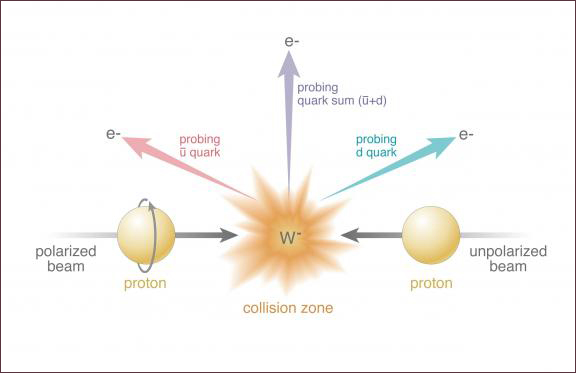Sea Quark Surprise Reveals Deeper Complexity in Proton Spin Puzzle
World science, 18 March 2019
New results from STAR experiment show antiquarks’ contribution to proton spin depends on “flavor”—and in a way that’s opposite to those flavors’ relative abundance. New results were published in the Physical Review D.
The proton spin puzzle: Scientists want to know how different constituents of the proton contribute to its spin, a fundamental property that plays a role in how these building blocks give rise to nearly all visible matter in the universe. Pieces of the puzzle include the orbital angular momentum of quarks and gluons, gluon spin and quark and antiquark spin. The latest data from RHIC reveal that the antiquarks’ contribution is more complex than previously thought.
“Previous RHIC results have shown that gluons play a significant role in proton spin. This new analysis gives a clear indication that the sea also plays a significant role. It is far more complicated than just gluons splitting into any flavor you like—and a very good reason to look deeper into the sea,” Ernst Sichtermann from the Lawrence Berkeley National Laboratory (the USA) noted.
To read the full press-release
The STAR experiment is one of the two major experiments at the Relativistic Heavy Ion Collider (RHIC) located in the Brookhaven National Laboratory (the USA). More than 500 physicists from 57 institutes of 12 countries take part in the experiment. RHIC is the only collider of polarized protons in the world. It is the second after the LHC operating collider in terms of beams’ energies.
